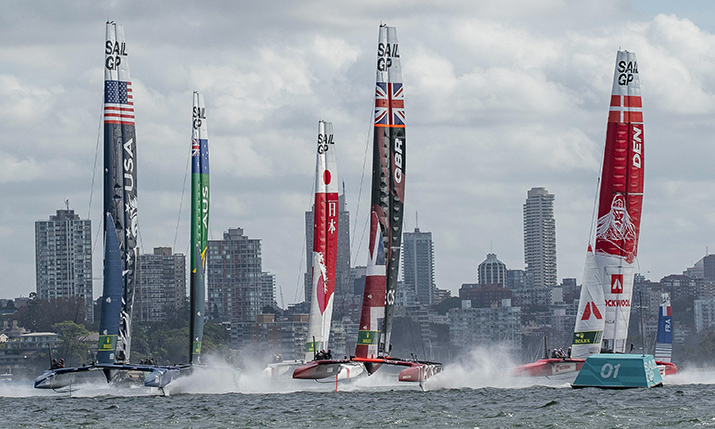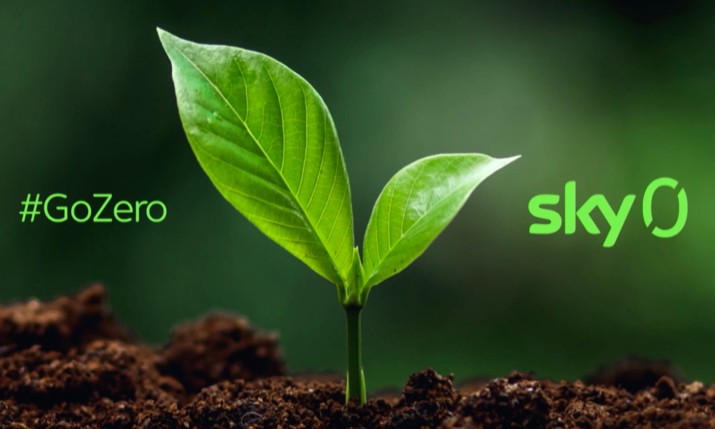Sports TV Awards showcase: One Planet Award for Sustainability in Sports TV
In the lead-up to the Sports TV Awards ceremony on Wednesday 27 May, SVG Europe is profiling all of the projects that have been nominated for an award. Today we are focussing on the shortlist for the One Planet Award for Sustainability in Sports TV.
The One Planet Award recognises and rewards individuals, companies, projects or initiatives from across the sports broadcasting and production sector that can demonstrate an impactful contribution to the transition to a net-zero carbon and zero waste society.
Key criteria: An initiative, programme or campaign that goes above and beyond the industry norm. The judges were also looking for entries that: provide a vision for a truly environmentally sustainable sector; demonstrate a powerful impact on the sector or on society as a whole; and include tangible evidence of the impact or progress being made.
The contenders (in alphabetical order) are:
SailGP, Oracle, Whisper, Timeline, TATA – SailGP remote production

Since the world premiere in Sydney on February 15 2019, SailGP has delivered an innovative and environmentally considerate solution to provide high-quality and consistent TV coverage of the new, annual global sailing championship. SailGP worked with partners Whisper, Timeline TV, Oracle, and TATA to deliver this ambitious project which pushes the boundaries with a remote production solution that delivers its programming into over 100 broadcast territories as well as a complementary, state-of-the-art app making SailGP available to a wide range of people.
The remote broadcast strategy enables live world feeds to be fully produced in London, up to 10,000 miles away from where the action is happening. The world feed uses more than 40 video and data sources, including the award-winning LiveLine FX technology for impactful on-screen graphics and 1,200 data points derived from hundreds of sensors placed on the boats and athletes.
Key innovations in this landmark remote production include the integration of super-low latency technologies and the in-house design of bespoke equipment such as IP controlled waterproof cameras that self-clean at sea.
From Sydney to San Francisco, Sail GP, Whisper, Timeline and Oracle have sought to design and combine cutting edge technologies to produce one of the world’s largest live remote production operations.
Sky Sports – #GoZero

Sky has had a strong environmental focus since 2006 when it became carbon neutral. In 2010 Sky Sports moved into Sky Studios which was at the time the most sustainable production environment in Europe, immediately reducing Sky Sports carbon footprint. From 2010-2020, the focus has been on two international campaigns; Sky Amazon Rescue and Sky Ocean Rescue.
In 2019 the Sky Sports Sustainability Initiative started using its significant buying power by introducing responsible business questions into its tender process. For the first time suppliers were asked to provide responsible business proposals alongside commercial and technical. Contracts are now awarded based on the evaluation of all these criteria. Rather than vague commitments, we guarantee tangible results by contracting responsible targets and we have seen this drive industry transformation.
As examples, Sky Sports were the first broadcaster to: ask NEP to reduce their carbon footprint; saw Telegenic rolled out SUP free OBs for other broadcasters in response to Sky Sports initiative; and moved to “Gas To Liquid” generator fuel, whilst exploring cleaner alternatives.
As Sky launched the Sky Net Zero Carbon campaign in February 2020, Sky Sports is addressing sustainability across all operations, people, stakeholders and with our content, that can influence and educate customers.
SVT, Arista, Clear-Com, Grass Valley and Net Insight – 2019 FIS Alpine World Ski Championships remote production
 As the host broadcaster for the FIS Alpine World Ski Championships, held in Åre, Sweden in February 2019, Sweden’s national public broadcaster Sveriges Television (SVT) had the opportunity to push the boundaries of live production. SVT wanted to be more ambitious than ever, deploying more cameras and delivering more angles and live replays for a rich, captivating viewing experience in parallel with a focus on sustainability.
As the host broadcaster for the FIS Alpine World Ski Championships, held in Åre, Sweden in February 2019, Sweden’s national public broadcaster Sveriges Television (SVT) had the opportunity to push the boundaries of live production. SVT wanted to be more ambitious than ever, deploying more cameras and delivering more angles and live replays for a rich, captivating viewing experience in parallel with a focus on sustainability.
SVT chose a remote production approach but decided to go one step further and completely eliminate the need for multiple OB trucks to support the live production operation, to reduce the need for technology and number of people on-site and thereby greatly reduce the need for set up time, transport and travel.
Using this approach, SVT was able to limit its on-location staff and equipment, requiring a support team of around 150 camera operators and technicians in Åre. The rest of the production workflow and staff were based in Stockholm, some 600 plus kilometres away.
This was a unique project on a scale that has never been seen before and it proves that this workflow can stand up to even the most rigorous conditions. SVT has shown that it is entirely possible to create world-class programming in new ways with significantly less equipment and staff on location. SVT has demonstrated with the 2019 FIS Alpine World Ski Championships that remote production can deliver a better fan experience while maximising resources and sustainability.
The winners of the SVG Europe Sports TV Awards, sponsored by Canon, will be announced during an ‘as live’ online awards ceremony at 5pm on Wednesday 27 May 2020. Hosted by sports broadcaster and presenter Abi Stephens, the ceremony will premiere on the SVG Europe Youtube channel, SVG Europe Facebook page, and the SVG Europe Sports TV Awards website

